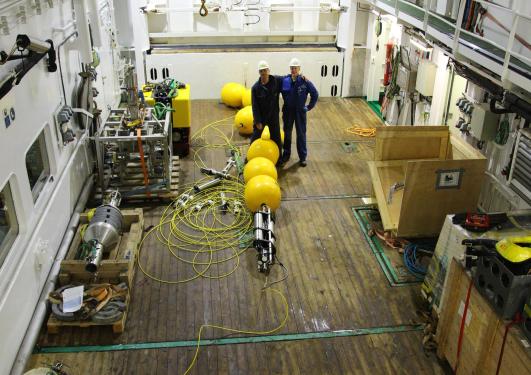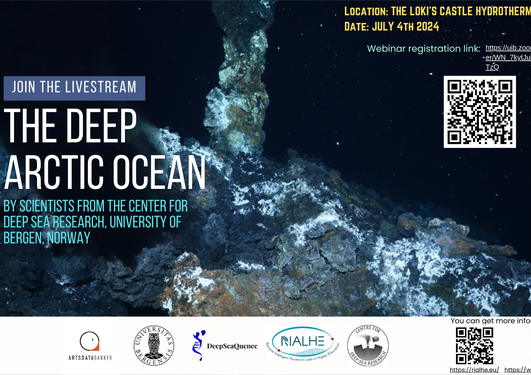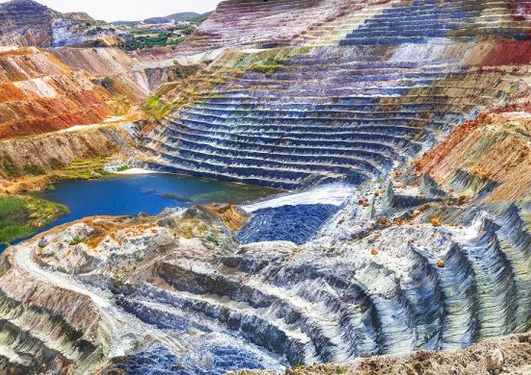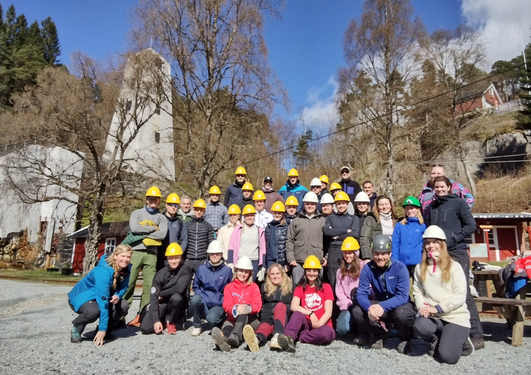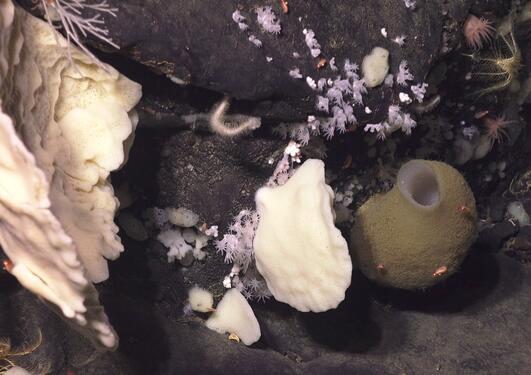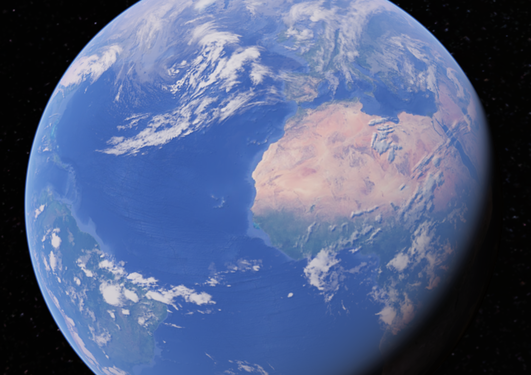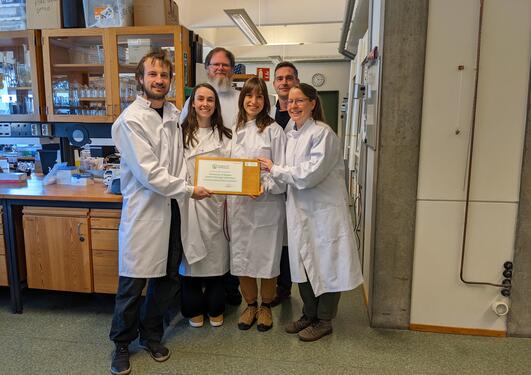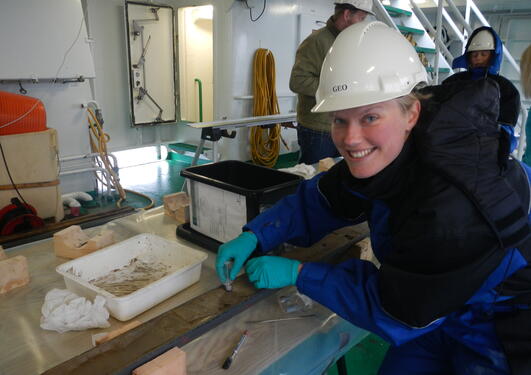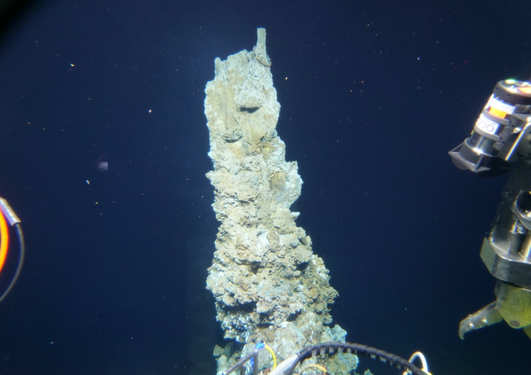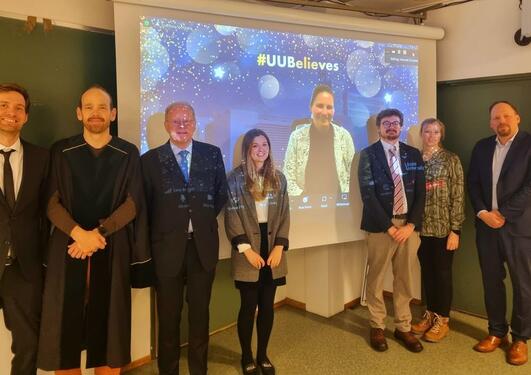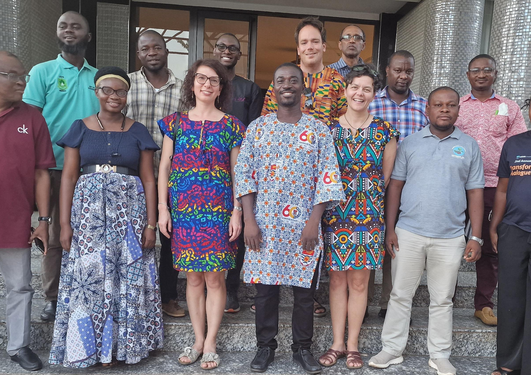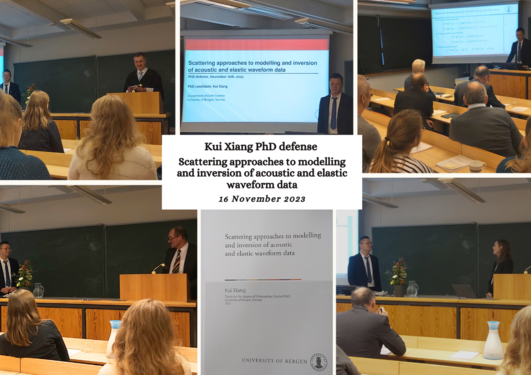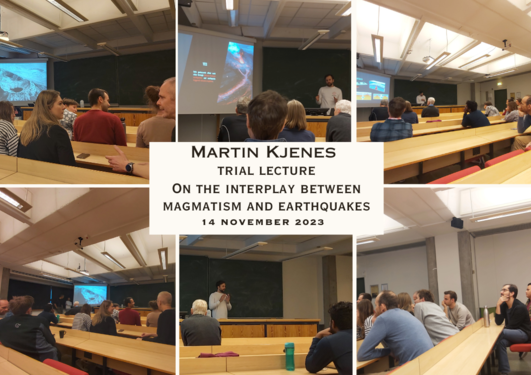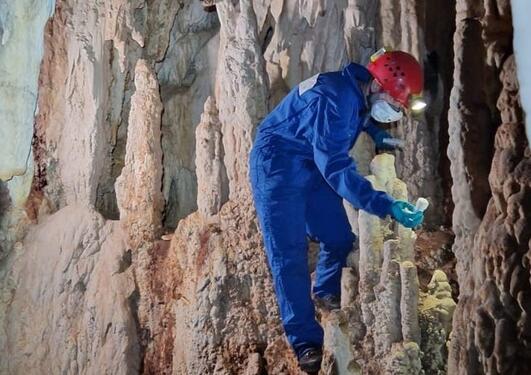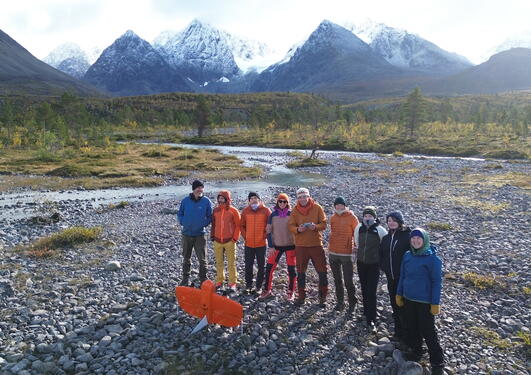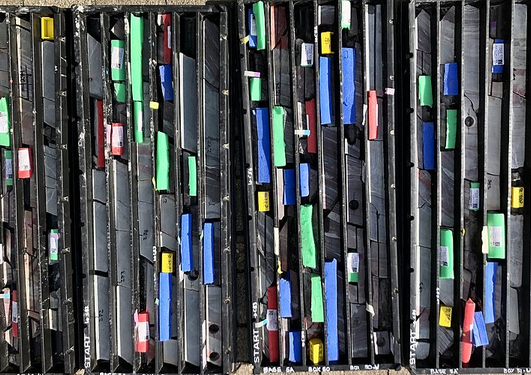News archive for Department of Earth Science
Join us for a live stream of a remotely-operated dive at Loki's castle hydrothermal vent field in the Arctic, 2300 meters below sea level.
Members of the Center for Deep Sea Research have received funding from Akademia Avtalen to organize a field-based course on the Island of Milos (Greece). Here is the description and the application link.
Last week, four members of the Centre for Deep Sea Research led a field excursion for the GEOV-109 Introduction to Geochemistry course at a former pyrite mine in Sunnhordland Geopark.
Deep sea research is a gateway to unlocking mysteries both within our planet and beyond, offering insights that can have profound implications for science, industry, and our understanding of life in the universe.
A lot is happening next week in Bergen, with among other the One Ocean week and the Ocean outlook events. Several members of the Centre for Deep Sea Research are involved in various events.
The Geomicrobiology Laboratory at UiB becomes the first public laboratory in Norway to receive the environmental certification from My Green Lab. The work on the certification has been done with support from the UiB Climate Fund.
Are inactive hydrothermal area really inactive? Maybe not... At least not microbiologically.
New microbiology research shows inactive hydrothermal vents are not so ‘dead’ after all (01.02.2024)
A new microbiology study points to highly active microorganisms living on ‘dead’ chimneys long after fluid flow has ceased to supply them with traditional chemical fuels. The findings have important implications for understanding inactive hydrothermal vents of commercial interest for deep-sea mining.
Thursday 30. November 2023 Hannah Elizabeth Petrie defended her thesis: An integrated geological characterization of marine ground conditions in the North Sea
A comprehensive UAV Data Utilization Workshop Successfully Empowers Trainers in Agriculture and Environmental Monitoring in Ghana, Africa.

On 28 November the annual Seismology Seminar took place in Litteraturhuset.
PhD candidate Kui Xiang successfully defended his thesis entitled 'Scattering approaches to modelling and inversion of acoustic and elastic waveform data' on 16 November.
PhD student Kui Xiang gave an interesting trial lecture on artificial learning and seismic modeling and inversion.
Martin Kjenes had on 14. November his trial lecture "On the interplay between magmatism and earthquakes". Martin will defend his PhD thesis next week, on Friday 24. November.
A recent study demonstrates how dripstones can be crucial for reconstructing past climates. The new approach can provide a detailed picture of the climate around early human occupations in South Africa.
What did the surface of Earth look like more than three billion years ago? What kinds of microbes lived there and when did they start producing oxygen? And what was the temperature and composition of the ancient oceans and atmosphere? Big questions like these is what drew a group of 41 scientists to sunny Berlin last week, including our Associate professor Desiree Roerdink.
Pages
- 2025
- 2024
- 2023
- 2022
- 2021
- 2020
- 2019
- 2018
- 2017
- 2016
- 2015
- 2014
- 2013
- 2012
- 2011
- 2010
- 2009
